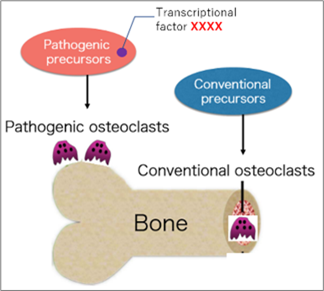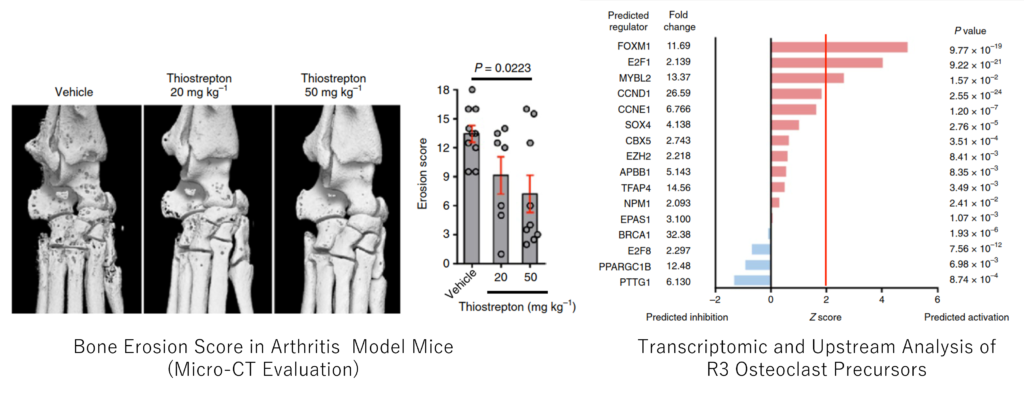Advantage and Core Benefit
- Newly identified transcription factor FoxM1, highly expressed in arthritis-specific models, plays a central role in RA pathogenesis.
- Does not require systemic immunosuppression; instead, selectively inhibits differentiation of pathogenic cells in inflamed synovium, making it viable even for patients with comorbid conditions.
- Small-molecule FoxM1 inhibitors hold strong potential as novel molecular-targeted RA therapies, promising high returns in drug development.
Background and Technology
Although early intervention with current RA therapeutics can prevent disease progression, existing immunosuppressive treatments carry risks such as serious infections and contraindications for patients with comorbidities. Hence, there is a strong need for more selective and safer alternatives.
This research identified a novel subset of osteoclast precursor cells (R3) that specifically appear in inflamed synovial tissue of RA. These cells were found to highly express the transcription factor FoxM1 (Forkhead box M1), which promotes differentiation into pathogenic osteoclasts.
Inhibition of FoxM1 using small molecules (e.g., RCM-1) demonstrated robust suppression of osteoclast differentiation and bone erosion, both in vitro and in vivo. The same inhibitory effects were also observed in samples derived from human RA patients. Thus, FoxM1 is validated as a key molecular target regulating joint destruction in RA, and FoxM1-targeted therapeutics are expected to complement existing treatment modalities.
 |
Data
- Newly identified FoxM1 as a transcription factor promoting pathogenic osteoclastogenesis in RA.
- FoxM1 inhibitors (e.g., RCM-1, thiostrepton) showed effective suppression of osteoclast differentiation and bone destruction in RA models and patient-derived cells.
 |
Expectations
- The university has no current plan to synthesize new compounds (NCEs) or conduct large-scale library screening.
- Accordingly, the researchers seek joint development partnerships with pharmaceutical companies, starting from screening of FoxM1 inhibitors.
- If new NCEs are identified during collaboration, the university hopes for shared IP ownership and is open to exclusive licensing negotiations based on existing patents.
Patent
Japan Patent: No. 7535786 (Granted: August 8, 2024)
PCT Application: PCT/JP2019/043057 (WO2020/091052)
Researcher
Prof. Masaru Ishii (Osaka University, Immunology Frontier Research Center)
Project ID: DD-02771a


